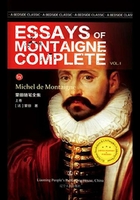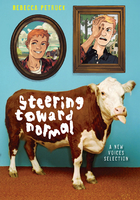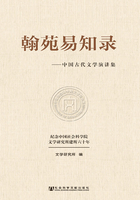Assunta De Cal came to the Questura a little after ten the following morning. An officer called from the entrance to say Brunetti had a visitor, then accompanied her to the Commissario's office. She stopped just inside the door, and Brunetti got to his feet and went over to shake her hand. 'How nice that we see one another again,' he said, using the plural to avoid addressing her either formally or informally. If she had looked older than her husband at the gallery opening, she looked even more so now. Her skin was sallow, and the lines running from her nose down either side of her mouth were more pronounced. Her hair was freshly washed and she wore makeup, but she had not managed to disguise her nervousness or the stress she seemed to be under.
She had apparently decided that he was to share in the same grammatical dispensation as Paola and addressed him as tu when she thanked him and said it was kind of him to take time to listen to her.
Brunetti led her to the chairs in front of his desk, held one for her, and took the other as soon as she was seated.
'Paola said you wanted to talk to me about your father,' he began.
She sat upright in the chair, like a schoolchild asked into the office of the preside to be reprimanded. She nodded a few times. 'It's terrible,' she finally said.
'Why do you say that, Assunta?'
'I told Paola,' she said, as though she were reluctant or embarrassed and perhaps hoped to learn that Paola had told Brunetti everything.
'I'd like you to tell me about it, as well,' Brunetti encouraged her.
She took a deep breath, brought her lips together, opened her mouth to sigh, and said, 'He says that Marco doesn't love me and that he married me for my money.' She did not look at him as she said this.
Brunetti could understand her embarrassment at repeating her father's remarks about her desirability, but these were not the threats Paola had mentioned. 'Do you have any money, Signora?'
'That's the crazy thing,' she said, turning to him and stretching out a hand. She drew it back just before it touched his arm, and she said, 'I don't have any. I own the house my mother left me, but Marco owns his mother's house in Venice, which is bigger.'
'Who's in that house?' Brunetti asked.
'We let it,' she said.
'And the money which comes from that? Is it enough to make you rich?'
She laughed at the idea. 'No, he lets it to his cousin and her husband. They're paying four hundred Euros a month. That's not going to make anyone rich,' she said.
'Do you have any savings?' he asked, thinking of the many stories he had heard, over the years, of people who had hoarded away their salaries and become millionaires.
'No, not at all. I used most of my savings when I inherited the house from my mother and had it restored. I thought I could let it and continue to live in my father's house, but then I met Marco and we decided we wanted our own house.'
'Why did you decide to live on Murano instead of here in the city?' From what Vianello had told him of Ribetti's work, the engineer would have to spend a lot of time on the mainland, and that would probably be easier from Venice than from Murano.
'I work in the factory, and sometimes, if there's a problem, I have to go in at night. Marco goes to the terra ferma a few times a week for his work, but he can get to Piazzale Roma easily enough from there, so we decided to stay on Murano. Besides,' she added, 'his cousin has been in the house a long time.'
Brunetti realized that this was a coded way of explaining that the cousin either would not get out of the house without a court order forcing her to do so or that Ribetti was unwilling to ask her to leave. It was not important to Brunetti which of these was true, so he abandoned the subject and asked, searching for the proper way to refer to future inheritance, 'Do you have prospects?'
'You mean the fornace? When my father dies?' she asked: so much for Brunetti's attempts at delicacy.
'Yes.'
'I think I'll inherit it. My father has never said anything, and I've never asked. But what else would he do with it?'
'Have you any idea what a fornace like your father's would be worth?'
He watched her calculate, and then she said, 'I'd guess somewhere around a million Euros.'
'Are you sure of that sum?' he asked.
'Not exactly, no, but it's a good estimate, I think. You see, I've kept the accounts for years, and I listen to what the other owners say, so I know what the other fornaci are worth, or at least what their owners think they're worth.' She looked at him, then away for an instant and then back, and Brunetti sensed that he was finally getting close to what she had come to talk about. 'But that's another thing that bothers me.'
'What?'
'I think my father might be trying to sell it.'
'Why do you say that?'
She looked away for a long time, perhaps formulating an answer, then back at him before she said, 'It's nothing, really. Well, nothing I can describe or be sure of. It's the way he acts, and some of the things he says.'
'What sort of things?'
'Once, I told one of the men to do something, and he – my father, that is – asked me what it would be like if I couldn't order men around any more.' She paused to see how Brunetti reacted to this and then went on. 'And another time, when we were ordering sand, I told him we should double the order so we could save on the transport, and he said it would be best to order enough only for the next six months. But the way he said it was strange, as if he thought … oh, I don't know, as if we weren't going to be there in six months. Something like that.'
'How long ago was this?'
'About six weeks, maybe less.'
Brunetti thought about asking her if she would like something to drink, but he knew better than to break the rhythm into which their conversation had fallen. 'I'd like to go back to the things your father has said about Marco. Has he ever talked about wanting to do anything to him?' Obviously, she must realize that Paola would have repeated to him what she had said but perhaps it helped her to pretend she had not revealed family secrets and let him coax the story out of her.
'You mean threaten him?'
'Yes.'
She considered this for some time, perhaps trying to find a way to continue denying it. Finally she said, 'I've heard him say what he hopes will happen to him.' It was an evasive answer, Brunetti knew, but at least she had begun to talk.
'But that's not exactly a threat, is it?' Brunetti asked.
'No, not really,' she surprised him by agreeing. 'I know how men talk, especially men who work in the fornaci. They're always saying that they'll break someone's head or break his leg. It's just the way they talk.'
'Do you think that's the case with your father?' Brunetti asked.
'I wouldn't be here if I thought that,' she said in a voice that had suddenly grown serious, almost reproving him that he could ask such a thing or treat her visit so lightly.
'Of course,' Brunetti agreed. 'Then has your father made real threats?' When she made no move to answer, he asked, 'Did Marco tell you?' He thought it would be best to speak of Marco familiarly and thus make the atmosphere more friendly again, if only to induce her to speak more openly.
'No, he'd never repeat things like that.'
'Then how did you learn about it?'
'Men at the fornace,' she said. 'They heard him – my father – talking.'
'Who?'
'Workers.'
'And they told you?'
'Yes. And another man I know.'
'Would you tell me their names?'
This time she did put a hand on his arm and asked, her concern audible, 'Is this going to get them into trouble?'
'If you tell me their names or if I talk to them?'
'Both.'
'I don't see any way that it could. As you said, men talk like this, and most often it's nothing, just talk. But before I can know if that's all it is, I need to talk to the men who heard your father say these things. That is,' he added, 'if they'll talk to me.'
'I don't know that they will,' she said.
'Neither do I,' Brunetti said with a small, resigned grin. 'Not until I ask them.' He waited for her to volunteer the names; when she didn't, he asked, 'What did they tell you?'
'He told one of them that he'd like to kill Marco,' she said, her voice unsteady.
Brunetti did not waste time trying to explain that a remark like this depended on context and tone for its meaning. He hardly wanted to begin to sound like an apologist for De Cal, but the little he had seen of the man led him to suspect that he would be prone to say such things without any serious intent.
'What else?'
'That he'd see him dead before he'd let him have the fornace. The man who told me this said my father was drunk when he said it and was talking about the history of the family and not wanting it to be destroyed by some outsider.' She looked at Brunetti and tried to smile but didn't make a very good job of it. 'Anyone who's not from Murano is an outsider for him.'
Trying to lighten the mood, Brunetti said, 'My father felt that way about anyone who wasn't from Castello.'
She smiled at this but returned immediately to what she had been saying. 'It doesn't make any sense for him to say that, no sense at all. The last thing in the world Marco wants is to have anything to do with the fornace. He listens to me when I talk about work, but that's politeness. He has no interest in it.'
'Then why would your father think he did?'
She shook her head. 'I don't know. Believe me, I don't know.'
He waited a while and then said, 'Assunta, I'd like to tell you that people who talk about violence never do it, but that's not true. Usually they don't. But sometimes they do. Often all they want to do is complain and get people to listen to them. But I don't know your father well enough to be able to tell if that's true about him.'
He spoke slowly and without judgement or criticism. 'I'd like very much to speak to these men and get a clearer idea of what he said and how he said it.' She started to ask a question but he went on, 'I'm not asking you as a policeman, because there's no question of a crime here, nothing at all. I'd simply like to go and talk to these people and settle this, if I can.'
'And to my father?' she said fearfully.
'Not unless I think there's reason to do that,' Brunetti answered, which was the truth. He had no desire to speak to De Cal again; further, he did not think her father a man much given to listening to the voice of sweet reason.
'You want me to tell you their names?' she asked, her voice suddenly softer, as if by making it smaller she could more easily hide from the answer.
'Yes.'
She looked at him for a long time. Finally she said, 'Giorgio Tassini, l'uomo di notte. For my father and for the fornace next door. And Paolo Bovo. He doesn't work for us, but he heard him talking.'
Brunetti asked for their addresses, and she wrote them down on a piece of paper he gave her, asking him if he would try to talk to Tassini away from the fornace. Brunetti was happy to agree, seeing it as an opportunity to stay clear of De Cal for the moment.
Brunetti had never been good at giving false assurances to people, but he wanted to give her at least some comfort. 'I'll see what they tell me,' he said. 'People tend to say things they don't mean, especially when they're angry, or when they've had too much to drink.' He remembered De Cal's face and asked, 'Does your father drink more than he should?'
She sighed again. 'A glass of wine is more than he should drink,' she said. 'He's a diabetic and shouldn't drink at all, and certainly not as much as he does.'
'Does this happen often?'
'You know how it is, especially with workmen,' she said with the resignation of long familiarity. 'Un'ombra at eleven, and then wine with lunch, then a couple of beers to get through the afternoon, especially in the summer when it's hot, and then a couple more ombre before dinner, and more wine with the meal, and then maybe a grappa before bed. And then the next day you start all over again.'
It sounded like the kind of drinking he was used to seeing in men of his father's generation: they'd drunk like this most of their adult lives, yet he had never seen one of them behave in a way that would suggest drunkenness. And why on earth should they change just because the professional classes had switched to prosecco and spritz?
'Has he always been like this?' he asked, then clarified the question by adding, 'I don't mean the drinking: I mean his temper and the violent language.'
She nodded. 'A few years ago, the police had to come and stop a fight.'
'Involving him?'
'Yes.'
'What happened?'
'He was in a bar, and someone said something he didn't like – he never told me about it, so I don't know what it was. I know this only from what other people have told me – and he said something back, and then one of them hit the other – I never learned who. And someone called the police, but by the time they got there, the other men had stopped them, and nothing happened. That is, no one was arrested and no one made a denuncia.'
'Anything else?' Brunetti asked.
'Not that I know about. No.' She seemed relieved that she could put an end to his questions.
'Has he ever been violent with you?'
Her mouth fell open. 'What?'
'Has he ever hit you?'
'No,' she said with such force that Brunetti could only believe her. 'He loves me. He'd never hit me. He'd cut off his hand first.' Strangely enough, Brunetti believed this, too.
'I see,' he said, and then added, 'That must make this even more painful for you.'
She smiled when he said that. 'I'm glad you can understand.'
There seemed nothing more to ask her, and so Brunetti thanked her for coming to speak to him and asked if she wanted to tell him anything else.
'Just fix this, please,' she said, sounding decades younger.
'I'll try,' Brunetti said. He asked for her telefonino number, wrote it down, then got to his feet.
He walked downstairs with her and out on to the embankment. It was warmer than when he had arrived a few hours before. They shook hands and she turned towards SS Giovanni e Paolo and the boat that would take her to Murano. Brunetti stood on the riva for a few minutes, looking across at the garden on the other side and running through his memory for personal connections. He went back into the Questura and up to the officers' room, where he found Pucetti.
The young officer stood when his superior entered. 'Good morning, Commissario,' he said. Was that a tan he saw on Pucetti's face? Brunetti had signed the forms authorizing staff leave during the Easter holiday, but he couldn't recall if Pucetti's name had been on it.
'Pucetti,' he said as he drew near the desk. 'You have family on Murano, don't you?' Brunetti could not remember why this piece of information had lodged in his memory, but he was fairly certain that it had.
'Yes, sir. Aunts and uncles and three cousins.'
'Any of them work at the fornaci?'
He watched Pucetti run through the list of his relatives. Finally he said, 'Two.'
'They people you can ask things?' Brunetti asked, not having to specify that the question referred to their discretion more than to the information they might possess.
'One of them is,' Pucetti said.
'Good. I'd like you to ask about Giovanni De Cal. He owns a fornace out there.'
'I know it, sir. It's on Sacca Serenella.'
'Do you know him?' Brunetti asked.
'No, sir. I don't. But I've heard about him. Is there anything specific you'd like to know?'
'Yes. He's got a son-in-law he hates and whom he may have threatened. I'd like to know if anyone thinks he'd actually do anything or if it's just talk. And I'd like to know if there's any word that he's thinking of selling his fornace.'
Brunetti watched Pucetti suppress the impulse to salute as he said, 'Yes, sir.' Then the younger man asked, 'Is there any hurry? Should I call him now?'
'No, I'd like to keep this as casual as possible. Why don't you go home and change and go out and talk to him? I don't want it to seem like …' Brunetti let his voice trail off.
'Seem like it is what it is?' Pucetti asked with a smile.
'Exactly,' Brunetti said, 'though I'm not sure I know what that is.'















